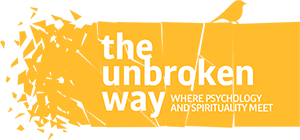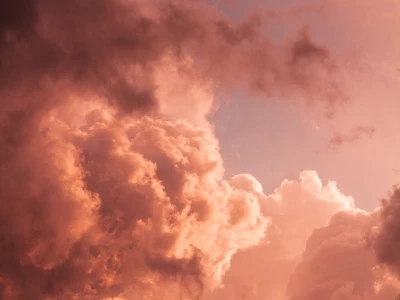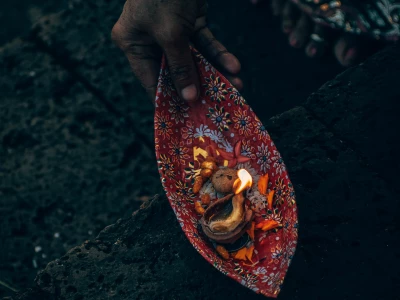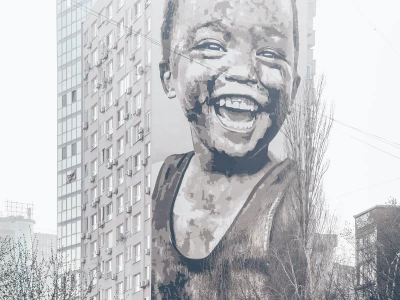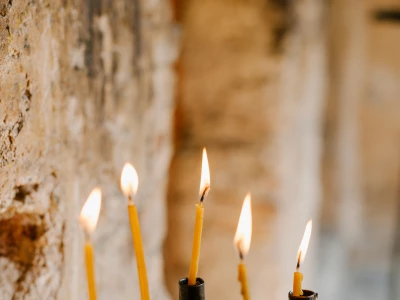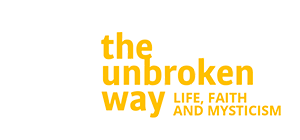Share this article
Fear and Anxiety: The Cost
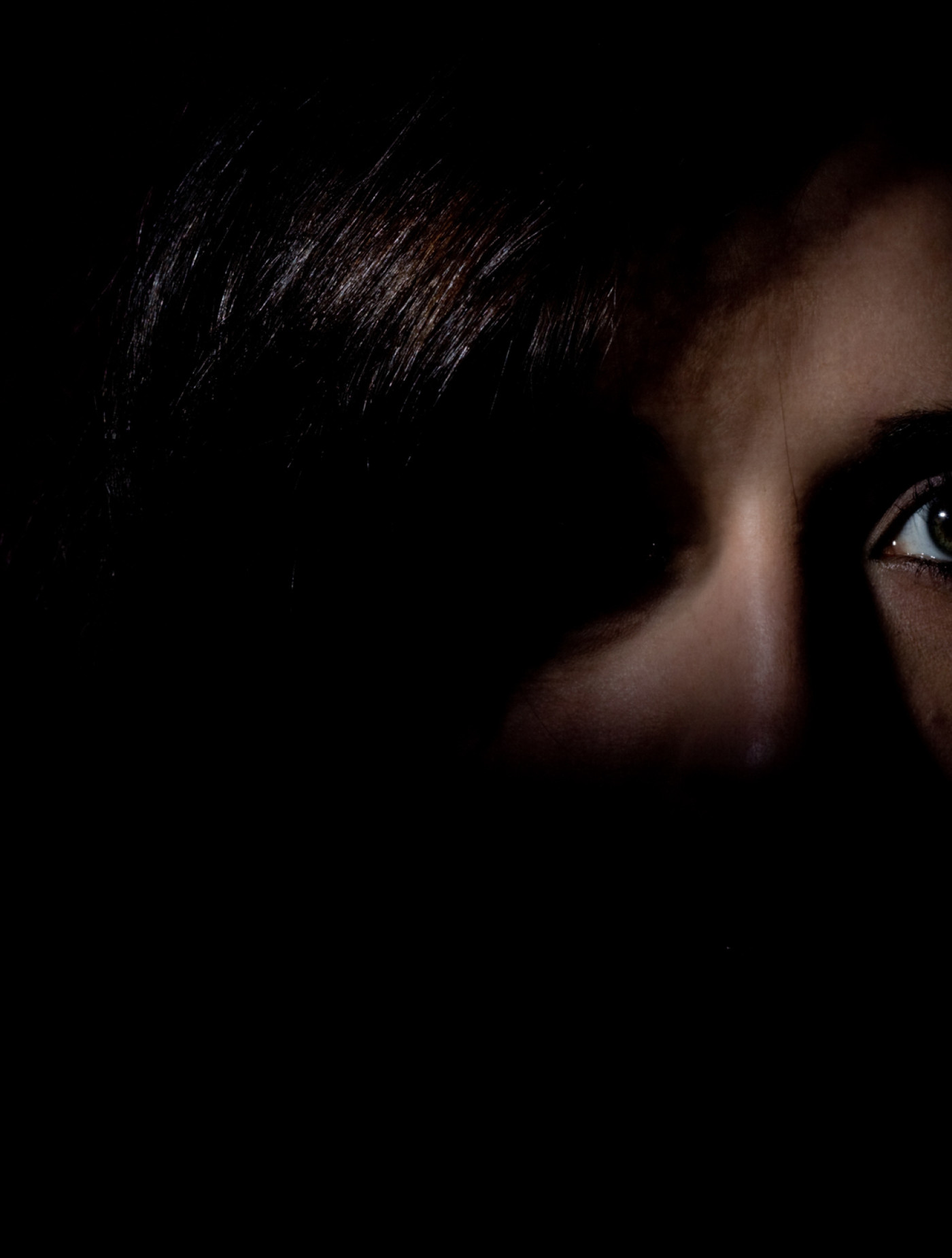
A Fearless Life: a short story
We had just finally drifted off to sleep when the phone rang in our bedroom. With fear creeping up my body, I looked at my watch. It was nearly midnight. It wasn't going to be good news at that hour of the night. Cushla, my late wife, lifted the phone extension on her bedside table. It was the oncologist finally making contact. After greeting him, Cushla got straight to the point: 'Is it cancer?' she asked him with untypical bluntness.
'It's fifty-fifty. We found something abnormal on your liver, but we still haven't received the definitive test results yet,' the oncologist answered, still holding back a bit. He then asked her to visit him, in a few days, at his consultancy rooms in St Vincent's Hospital (Dublin) when he would have a clearer picture.
After the call, Cushla and I chatted for a short while, and then, astonishingly, within minutes, she was able to fall back asleep! She was living by her conviction: ‘100 per cent faith, 0 per cent fear'.
A week after seeing him, the oncologist confirmed what Cushla had already suspected: the cancer had returned with a vengeance, and this time it was terminal. She had been diagnosed a year earlier with breast cancer, but she had been given the all-clear six months later. However, as I mentioned, the oncologist suspected not all was well at her latest twice-yearly check-ups. Two months after that, Cushla died. She had led an extraordinary life and left a remarkable legacy, especially on how to live a fearless life.
So, how did Cushla become fearless? How could she fall asleep with the thought that she was about to face imminent death? Before I answer these questions (in Fear: Part Two, Overcoming Fear), it's necessary to explore the two main types of fear and their consequences for limiting your ability to flourish.
Good and Bad Fear
Not all fear is bad. At a basic level, it is an instinct intended to keep us safe. We are hardwired for self-preservation, and when our lives are threatened, a heightened awareness of fear kicks in to protect us. However, other states of fear lower our coping skills and hold us back from our life's purpose. Probably the most insidious is anxiety. It makes us preoccupied with ourselves and stifles our ability to act at our highest level. It divides our minds, causes us to procrastinate and enslaves us with uncertainty.
In general, psychologists view fear as a reaction to a specific, observable danger. It is attached to a particular thing or circumstances. In other words, fear is an emotional response to a known or a definite threat (Horwitiz, 2013). On the other hand, anxiety is a diffuse, unfocused, objectless, future-oriented fear (Barlow, 2002). Because we may not be consciously aware of it, this form of mental pressure is incredibly subtle and devious. It is always lurking in the background, and we have no peace. We are at the mercy of a conditioned mind and may have developed unconscious dysfunctional coping strategies such as believing that if we don't worry a lot, we're not in control!
It's worthwhile to delve even more into the consequences of fear and anxiety before investigating what we should do when we find ourselves in this scary predicament. By being more conscious of how they can enable poor decision-making, lower our resilience and slow us down in finding our purpose, we will be better equipped to begin our journey to fearlessness.
Consequences Of Fear
Often, when we face storms in our lives and need calmness and composure, we instead feel an acute sense of fear that is crippling. It's a feeling that grips our hearts. It imprisons us, and we become paralysed. To add to our woes, it's frequently the case that when we find ourselves in this valley of terror that our Goliaths appear. The monsters and giants which we buried deep down seem to grow bigger and more menacing. They cause us to lose our ability to grade our fears, and we feel threatened, with all kinds of alarms warning us to run or distract ourselves. It's then that we can make disastrous decisions that may affect us for the rest of our lives.
Fear Will Lead You In The Wrong Direction

'If the ladder is not leaning against the right wall, every step we take just gets us to the wrong place faster.'
― Stephen R. Covey, author of The 7 Habits of Highly Effective People.
I was in my 50s and reflecting on my life when I finally realised that every critical decision I ever made, based on fear, never worked out well for me in the long run. Being sped up and making fearful choices often led me to put my ladder against the wrong wall. For instance, I have worked on projects with people I knew, from the get-go, that I shouldn't have. But, because I lacked the courage and confidence to go it alone, I ignored my intuitions and carried on regardless. Typically, everything was rosy in the short -term, and our plans would seem to be coming together. Eventually, though, sometimes, after years of success, there'd be a falling out. Everything would end in tears, usually leading to the ultimate failure of the project or enterprise.
If you think about it now, I bet you, too, have never made a fear-based decision that turned out well for you and others in the long run. You need to take your time and be honest with yourself with this exercise. For example, you might realise that the fear of being alone caused you to hang out with people who weren't good for you. For others, the dread of being 'left on the shelf ' may have driven you into doomed marriages or to stay in a job years longer than you should.
Fear Holds You Back From Fulfilling Your Purpose
Fear is one of the most common reasons we procrastinate. It delays us from taking action. We don’t aim high because we fear we will fail or be rejected, hurt or embarrassed. So we play it safe and avoid taking risks or trying new ways. But, God will continue to call us out of our comfort zone throughout our lives. Like the apostle Peter, we need to have faith and step out of the boat, even though what we are being asked to do often doesn’t seem to make sense to us at the time. However, when we take that step, we begin a journey into an extraordinary life, a life that befits our highest vision.
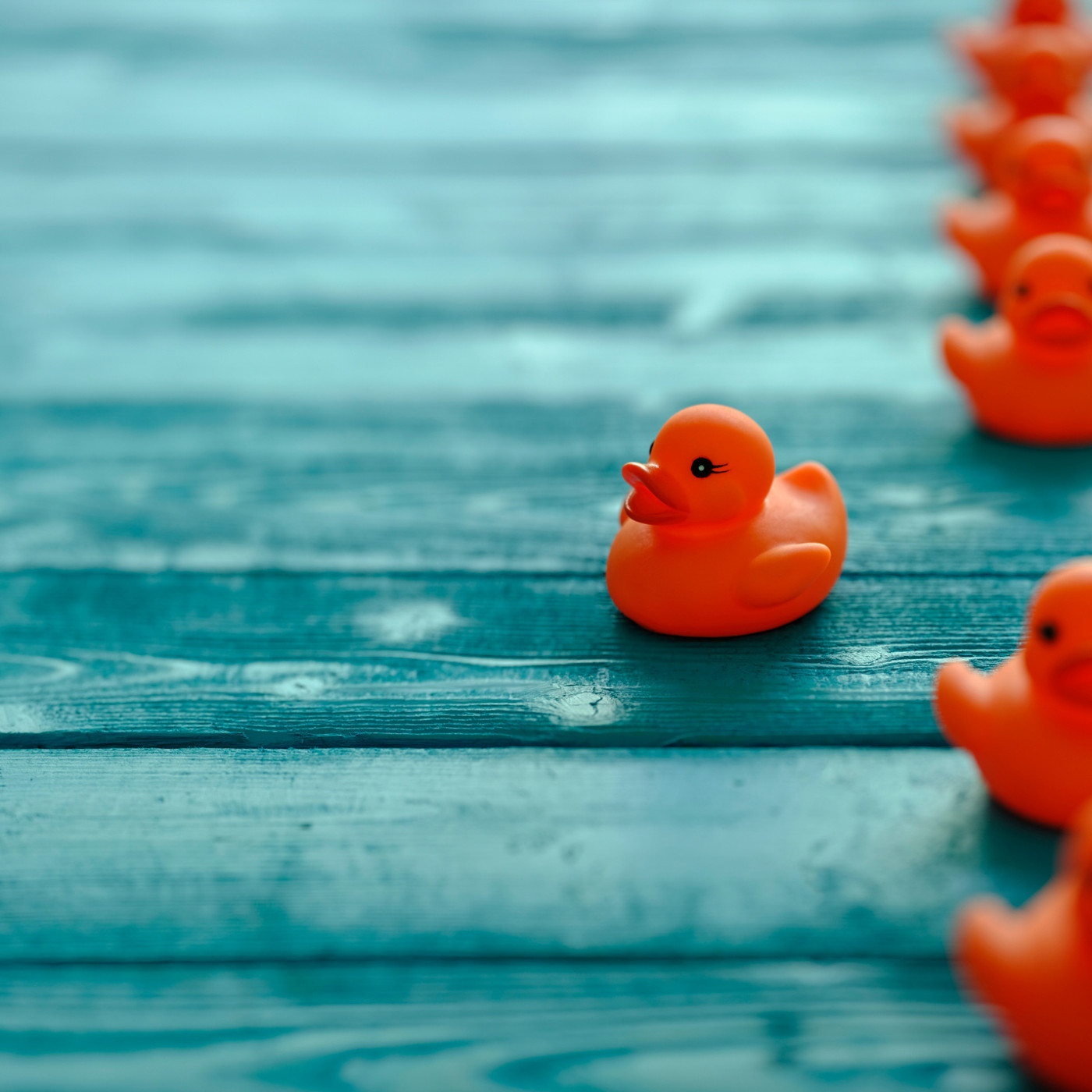
'Be who God meant you to be, and you will set the whole world on fire!'
Saint Catherine of Siena (1347-1380)
Cushla’s fearlessness was a consequence of her strong faith (something I will elaborate on more in Fear: Part Two ). She never made decisions from fear. Instead, her guidance came through mostly in the form of what she called her knowings. These knowings were a higher form of knowledge she drew from deep within her soul. It was a gift she shared with well-known mystics.
Early in our marriage, it sometimes seemed to me that some of her knowings defied common sense. ‘Ten years of teaching is enough for me,’ she had said to me one day. She was talking about her permanent teaching post at Clongowes Wood College, a Jesuit secondary boarding school in County Kildare.
She had never complained once about teaching. It was a role she enjoyed, and her students and colleagues had huge respect for her. But she wanted to move on. It was another of her knowings. The advantages of the long holidays and the security of a permanent teaching post, which included a full pension on retirement, weren’t for her. She knew it wasn’t her destiny to continue teaching. I wanted what was best for my wife, but still, I panicked a bit. I asked her to consider the secure salary she would be giving up. It seemed to me that she was taking a step back. But really, it was fear that was limiting my view of the future.
‘Don’t worry. Everything will work out,’ Cushla said with confidence. She had such an evident trust in God that I believed her and began to relax. A week later, she calmly ‘stepped out of the boat’ and duly handed in her notice at Clongowes. She hadn’t even looked for another job beforehand.
After the summer holidays, she got a job in a pizza takeaway, working unsociable hours and earning a small wage, with little to no benefits. She had moved from a respected teaching position in one of Irelands’ most privileged schools (Clongowes was James Joyce’s alma mater and featured prominently in his semi-autobiographical novel, A Portrait of the Artist as a Young Man) to making pizzas. But status had never meant much to her. Despite the many mundane tasks involved, she had decided early on that she would enjoy working hard at the new job.
A year later, a business partner, after witnessing her diligence and talent when working part-time in a business I co-owned with him, suggested she join our new fast-growing enterprise as a full-time marketing manager. Shortly after joining the company, she became instrumental in growing it into a huge success. More importantly, through her continuous courage and faith, she continued developing into a highly developed soul.
Fear Lowers Our Ability To Cope
'The only thing we have to fear is fear itself.' Franklin D. Roosevelt
The above sentence was uttered by Franklin D. Roosevelt in his first inaugural address in 1933 when the world was in the throes of the Wall Street Crash. He knew fear could incapacitate and handicap people's resourcefulness. He went on to describe this type of fear as 'nameless, unreasoning, unjustified terror.'
This heart-gripping fear often brings us more suffering by narrowing and cluttering our minds and keeping us from seeing the best course of action. We accept our anxious thoughts as truth because they feel real. It can seem that we will never be able to cope. But don't be discouraged. In Fear: Part Two -Overcoming Fear, we will explore how to overcome fear with insights from various spiritual traditions.
Recommended Resources
The Surrender Novena by Fr. Dolindo Ruotolo, a mystic and prophet. You can find it on fatherdolindoruotolo.com. If you do nothing else regarding your fears, I recommend strongly that you read this prayer.
Share this article
Categories
in your inbox
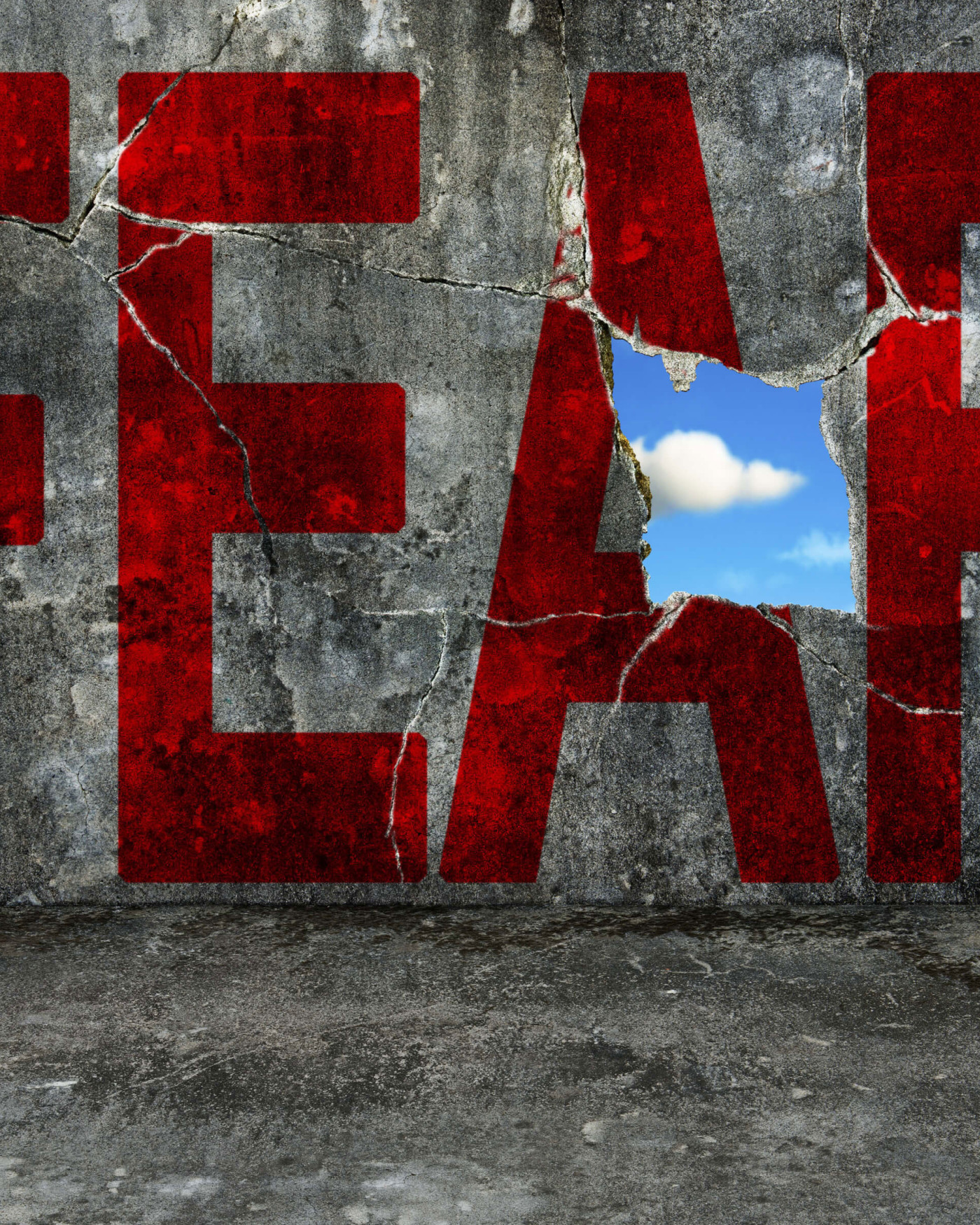
Fear
